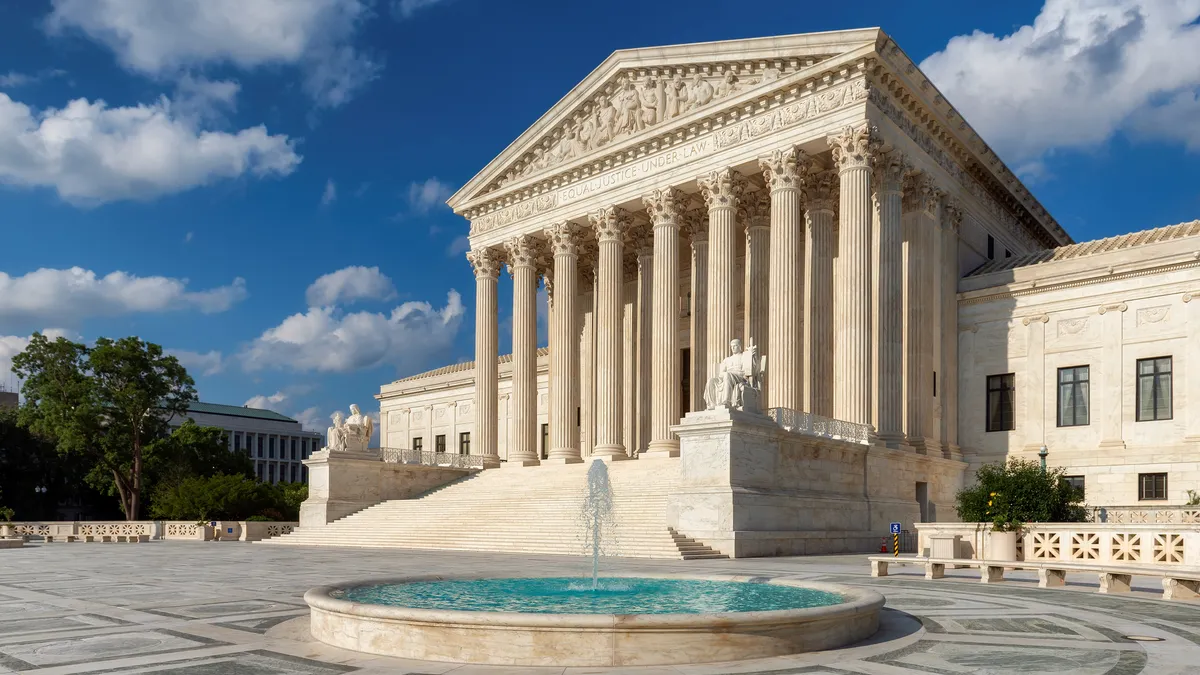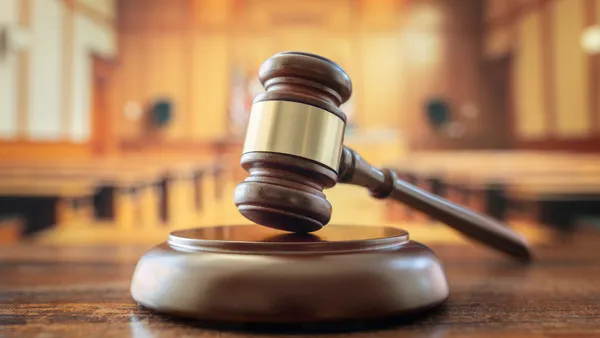After a busy break, the U.S. Supreme Court kicked off its October 2024 term Monday. The upcoming term looks slightly different than past ones, with a number of issues related to K-12 on the roster — yet not too many with a direct impact on school policies.
Here's what to know now that the high court is back in session:
This term's education caseload is lighter
In the past few years, the Supreme Court has weighed in on a number of cases that have significantly altered the education landscape. From Espinoza v. Montana Department of Revenue in 2020 — which paved the way for public funding to be used for religious school choice programs — to overturning race-conscious college admissions in 2023 in a case brought against Harvard University and the University of North Carolina at Chapel Hill, the bench's decisions have changed policies and practices in key areas.
Even cases that weren't directly tied to education delivered significant potential for change. In Loper Bright Enterprises v. Raimondo, for example, the last term's overturning of the Chevron doctrine is expected to blunt the Education Department's ability to interpret policies through rulemaking.
However, this term is relatively lighter on K-12 or related issues. Instead, the bench will be hearing a handful of cases that are indirectly tied to public school issues such as E-rate funding, gun violence and transgender rights.
There are still some important issues on the docket
The term begins on Oct. 7 with oral arguments in Williams v. Washington, a case that addresses whether state administrative remedies must be exhausted before bringing a lawsuit against local government officials for violating civil rights. The case could reverberate in K-12 areas like special education.
On Nov. 4, justices are scheduled to hear Wisconsin Bell, Inc. v. United States, which will decide whether reimbursement requests submitted to the Federal Communications Commission's E-rate are considered "claims" under the False Claims Act — or, more specifically, whether individuals can claim telecommunications companies defrauded the government by overcharging schools and libraries.
Also slated for this term is United States v. Skrmetti, which is expected to have a major impact on gender affirming medical care for minors. Its outcome could spill over into transgender student issues in public schools, especially after debacles such as when Texas Gov. Greg Abbott required mandatory reporting by K-12 teachers and school nurses, among others, of gender affirming care as "child abuse."
Additional issues on the docket will weigh the constitutionality of the Biden administration's regulatory decisions limiting ghost guns and vapes.
The Biden administration has curbed ghost guns, or untraceable homemade firearms that have been used in school shootings, through regulations requiring background checks and age verification prior to the purchase of kits used to construct these weapons. Gun manufacturers and advocates are arguing the administration overstepped its authority in its efforts.
The e-cigarettes case is over the Food and Drug Administration's denial of certain flavored vape products, which the agency poses a risk to youth.
Access to both ghost guns and vaping products have concerned educators and school mental health and safety experts
Supreme Court rejected a handful of other K-12 cases
Prior to the term's kickoff, the justices declined to hear a few notable K-12 cases.
One high-profile case, TJ v. Fairfax County School Board, had been appealed to the Supreme Court in 2023 on the heels of the college race-conscious admissions case. Justices considered in multiple internal sessions whether to take the case before ultimately deciding not to.
In addition, the high court declined a case involving the use of a taser on a student with an intellectual disability.
Considering the court receives 7,000 to 8,000 petitions of certiorari each term, it's not uncommon for justices to punt on the majority of K-12 cases, along with those in other areas. In the end, the court ends up hearing only around 80 total cases each term.
Meanwhile, cases have already been brought to the justices' attention for the next term. A group of Jewish, Muslim and Christian parents from Maryland asked the court last month to weigh in on the constitutionality of curriculum opt-out policies.
And those in favor of the nation's first religious charter school, St. Isidore of Seville Catholic Virtual School, are appealing their case to the high court after the Oklahoma State Supreme Court decided against its opening this school year.
Title IX issues haven't been taken up yet
One of the most contentious civil rights issues in public schools, however, has yet to make it to the docket. In the past few years, Title IX experts repeatedly anticipated that the justices would finally answer the question of whether LGBTQ+ students are included under federal anti-sex discrimination protections.
While numerous such cases are currently in the lower courts, none have yet been accepted by the court. In 2021, the justices rejected Grimm v. Gloucester County School Board, which could have decided whether schools are violating LGBTQ+ students’ rights when they prohibit them from using facilities such as locker rooms or bathrooms aligning with their gender identity.
The issue is more ripe than ever, with the Biden administration's final Title IX rule protecting LGBTQ+ students under major scrutiny in court cases involving at least 26 states where the rule is now enjoined. This past July, even U.S. Solicitor General Elizabeth Prelogar told justices in a pair of filings that the issue "may well require" the Supreme Court's input.
Less than a month later, the Supreme Court blocked the administration's request to partially enforce its rule in the states where the rule is enjoined in its entirety. However, the larger issue of whether Title IX protects LGBTQ+ students remains unanswered.














